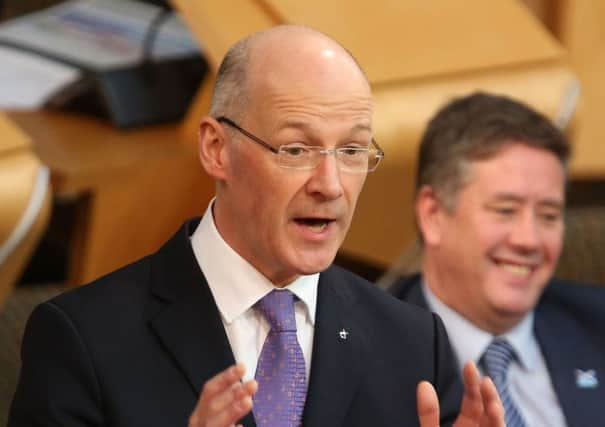Comment: Competition forced tax rate U-turn


LBTT is one of the two new taxes Scotland will control under the Scotland Act 2012. One of the first new taxes the Scottish Parliament has set for 300 years, its history so far has been chequered.
Unusually, the rates announced yesterday are lower than those announced when the Draft Budget was published last October. In the Draft Budget, houses up to £135,000 were to be exempt: this limit has now been increased to £145,000. Houses costing £135,000-£250,000 were to pay 2 per cent: this stays the same. However, properties between £250,000-£325,000 will face a LBTT rate of 5 per cent, rather than the 10 per cent announced last October, which will now only apply to properties valued between £325,000 and £750,000.
Advertisement
Hide AdAdvertisement
Hide AdWhat caused the change? The 5 per cent rate that now applies between £250,000 and £325,000 exactly matches the equivalent tax rate set by the Chancellor last December for the rest of the UK. This is a small but important segment of the Scottish housing market and there was a danger the contrast between Scottish and rUK rates could be politically damaging to the Scottish Government.
So did the finance secretary bow to pressure from affluent homeowners worried their main asset might decline in value due to high rates of LBTT? The Scottish Government could rightly argue the Chancellor’s decision to reduce stamp duty in England has had a beneficial effect on the size of Scotland’s grant from Westminster. Though the logic is complex, it has delivered an unexpected windfall to the Scottish Government. Its dilemma was whether to hold LBTT at the rates announced in October and put the extra cash it received from Westminster to other priorities or to reduce LBTT rates so they were more closely aligned with rUK. The decision taken was to reduce the LBTT rates. The size of the Scottish Budget has therefore not changed, but this is the first of perhaps many cases where tax competition has undermined the case for more public spending.
• David Bell is professor of economics at Stirling University.